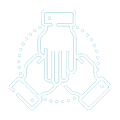Treatment for Bipolar 2 Disorder
Bipolar disorder is a complex mood disorder marked by extreme shifts in mood, energy, and activity. People who are diagnosed with it experience manic episodes (emotional peaks) as well as depressive episodes (emotional valleys) that may last for weeks, months, or longer. These intense changes in mood can dramatically affect a person’s relationships, work, and ability to carry out daily activities. Therefore, it is essential to seek treatment for Bipolar 2 and other Bipolar Disorders from a Licensed Clinical Psychologist.
There are three recognized types of bipolar disorder — bipolar 1, bipolar 2, and cyclothymia. Each type is identified by manic and depressive episodes, with the distinction that with bipolar 2 and cyclothymia the mood shifts are less severe. Another distinguishing factor pertains to depressive episodes. Those with bipolar 1 may not have depressive episodes at all, while those with bipolar 2 and cyclothymia experience them to some degree.
Symptoms
People who are diagnosed with bipolar 2 disorder experience symptoms of mania and depression. These are more than just normal highs and lows; they are intense feelings that affect your thinking and behavior, making everyday life difficult. Working with a Bipolar 2 Therapist is the key to addressing the root of your Mental Health Disorder and healing from these symptoms.
Mania and Hypomania
Those who suffer from bipolar disorder will experience one or more episodes of mania or hypomania. Mania is an extreme feeling of high energy, overwhelming self-confidence, and euphoria. These emotions are the cornerstone of bipolar 1 disorder. Manic episodes that are less intense are referred to as hypomania and are commonly associated with bipolar 2 disorder.
Symptoms of mania and hypomania may include:
- Increased energy
- Racing thoughts and rapid speech
- Decreased need for sleep
- Agitation or irritability
- Reckless behavior
- Overconfidence
- Delusions
- Hallucinations
One of the primary distinctions between bipolar 1 and 2 is the level of intensity of mania. Those with bipolar 2 experience a milder form of mania — they may feel more energetic and creative, but they won’t experience some of the more severe symptoms such as delusions and hallucinations in which their functioning is impaired or they need to be hospitalized.
Depression
When someone with bipolar disorder experiences a depressive episode, the symptoms are similar to those of someone with clinical depression and can include:
- Feelings of overwhelming sadness or hopelessness
- Loss of motivation
- Difficulty concentrating
- Changes in eating or sleeping habits
- Loss of interest in pleasurable activities
- Low energy levels or extreme tiredness
- Unexplained aches and pains
Differences Between Bipolar 1 & Bipolar 2
Bipolar 2 is often thought of as a less severe form of bipolar disorder compared to bipolar 1; however, individual experiences can vary widely. The primary difference between the two forms of bipolar disorder is that a person diagnosed with bipolar 2 must have experienced both manic and depressive episodes, whereas someone with bipolar 1 may only experience mania. Those with bipolar 2 also tend to have manic episodes that are less intense than those suffered by someone who has bipolar 1, which is why bipolar 2 systems are usually referred to as hypomania (not full-blown mania) and depression.
Diagnosis
Someone may be diagnosed with bipolar 2 disorder if they have experienced at least one cycle of hypomania and depression and all other disorders have been ruled out. An important and sometimes difficult part of diagnosis is ruling out other possible causes for the changes in mood. People who are taking certain medications or are struggling with addiction may exhibit some of the same symptoms. It is also possible to misdiagnose someone with bipolar disorder when they are actually suffering from another mental health condition such as schizophrenia or delusional disorder since they have some of the same symptoms in common.
Although bipolar 2 is often labeled as a milder form of bipolar disorder, it should still be taken very seriously as it can have life-altering consequences. Research also suggested that those suffering from bipolar 2 disorder spend more time dealing with depressive episodes so even though their mania may not be as intense, the depression they experience can have a profound impact on their overall quality of life.
Treatment for Bipolar 2 Disorder
Bipolar 2 disorder is a long-term, but treatable condition that often involves a combination of lifestyle changes, psychotherapy, and medication.
Self-Help Strategies
Improving your overall physical health can be a simple and very effective way to manage symptoms, such as following a healthy diet, getting regular exercise, and making sure to get enough sleep. Experts agree that there is a direct correlation between mental and physical health, so anything you can do to look after your physical wellbeing should help.
While consulting with a licensed psychologist can do a lot toward improving your mental health, there are also things you can do on your own that will help. For instance, writing in a diary and making note of possible triggers. Finding a support group is another option that may assist you in getting through your particular challenges by being able to talk through them with others.
Psychotherapy
Working with a licensed, clinical psychologist is an important part of bipolar disorder treatment. Through various forms of psychotherapy such as cognitive-behavioral treatment and dialectical behavior treatment, clients can talk through their difficulties and emotions and identify effective ways to cope with their symptoms. Because episodes may be triggered by stressful events, psychotherapy can help by identifying those triggers and creating a plan for avoiding or managing them.
Treatment for Bipolar 2 Disorder
If you’re plagued by extreme highs and lows that are wreaking havoc on your life, don’t put off your health and happiness any longer. Take the first step toward healing by contacting Blair Wellness Group for Bipolar 2 counseling in Los Angeles, Beverly Hills, West Hollywood, and beyond. Under the expert and compassionate care of Licensed Clinical Psychologist Dr. Cassidy Blair, you’ll receive the support and guidance you need to start feeling like yourself again.
We offer in-person, telephone, and virtual teletherapy sessions as part of our available treatment for Bipolar 2 Disorder. Our concierge clients can schedule appointments any time of day or night, seven days a week. In addition to Psychotherapy for Bipolar Disorders, we also offer comprehensive Mental Health services for Addiction, Anxiety, Eating Disorders, anger management, and relationship issues.
If you’ve been searching for a psychologist who can help you get back on the right track and overcome whatever challenges they may be facing, contact Blair Wellness Group to make an appointment.
Other Service
-
Binge Eating DisorderBinge Eating Disorder
-
Anorexia NervosaAnorexia Nervosa
-
Bulimia NervosaBulimia Nervosa

Office Hours
Mon - Fri :
7 am - 11 pm
Sat - Sun :
9 am - 10 pm
Our Core Values
Discover effective solutions for addiction at Blair Wellness Group today. Call us at 310.999.4996 to schedule an appointment. We welcome patients from Beverly Hills, Los Angeles, Irvine, Newport Beach, and the surrounding areas.

Reliable
At Blair Wellness Group, we are here to meet your clinical needs at any time.

Dedicated Support
Our team provides the compassionate care, support, and necessary interventions needed for our clients to achieve their goals and clinical objectives.

Experience
With 15+ years of clinical experience in providing an array of psychological services, we are committed to helping our patients achieve their goals.

Professional Team Support
We are dedicated to the well-being of our clients and have the extensive training to provide them with high-quality care.
Looking for a Local Psychologist?
Our Psychologists and Therapists in Bel Air, Beverly Hills, Brentwood, Westwood, Century City, Irvine, Newport Beach, La Jolla, Palo Alto, the greater Los Angeles Areas, Orange County, Georgetown, Washington D.C., and Arlington, Virginia. Contact us today to discover how Blair Wellness Group can help you overcome personal or professional challenges and mental health disorders, such as depression, anxiety, relationship challenges, addiction issues, and personality disorders.
Dr. Cassidy Blair is a renowned Licensed Clinical Psychologist and trusted Performance Coach who specializes in providing Concierge-Psychological Care and Executive Coaching for high-achieving professionals. With a deep understanding of the unique challenges faced by CEOs, executives, entrepreneurs, and leaders, Dr. Blair offers tailored, confidential care designed to foster emotional well-being, personal growth, and professional excellence. Her clientele values her discretion, clinical expertise, and emotionally intelligent approach to navigating complex personal and professional dynamics.
- Dr. Cassidy Blair, Psy.D.
- Dr. Cassidy Blair, Psy.D.
- Dr. Cassidy Blair, Psy.D.
- Dr. Cassidy Blair, Psy.D.


